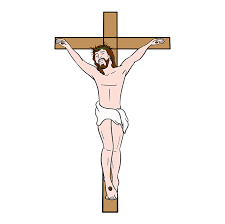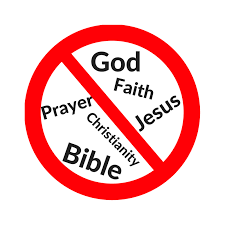 In Jeremiah Camara’s film Contradiction: A Question of Faith, the question is whether blacks’ religiosity helps or harms them.
In Jeremiah Camara’s film Contradiction: A Question of Faith, the question is whether blacks’ religiosity helps or harms them.
They tend to be more religious than other Americans, on average. Especially black women, far more than men. There are 85,000 predominantly black churches, roughly one for every 500 African-Americans. They’re less likely to question their faith, strongly inculcated down the generations. But if all that prayer did any good, blacks would be flush with God’s blessings. Obviously they’re not.
Camara sees religion as a misdirection of time, energy, and resources, that actually hinders black progress. There seemed to be little concept of “God helps those who help themselves.” Instead, worshipers are shown as mainly looking for miracles to lift them up. (Similarly, they’re suckers for lotteries.)

As the film points out, Christianity is itself a legacy of enslavement, having been forcibly imposed to replace ancestral belief systems. Jesus was not a black man from Africa. Somewhat weird, really, that African-Americans still hold so firmly to this religion.
People were asked whether Jesus means more to them than the sacrifices of their own ancestors. Camara was nonplussed at their answering yes.

Yet some people in the film claimed God gives them morality. Camara said that’s not being moral — merely obedient. Fear of Hell does play a big role. (For blacks growing up, religion is “a big woman with a belt.”) But in fact we do good because of our thinking brains, experience, and grasp of how to live amongst others. God is unnecessary.
The film was very negative about black pastors, calling this a lucrative career requiring no real qualifications except a talent for emotional manipulation. There was a tutorial on six basic techniques: 1) repeated phrases as a hook; 2) pointing up people’s tribulations; 3) assigning actions like “touch your neighbor;” 4) peddling hope;

Camara observed that if these guys were really in communication with a supreme being, shouldn’t we expect more profound wisdom than the obvious claptrap they spout? It’s pathetic they’re taken seriously, rather than as disingenuous hucksters or deranged fools.
The idea of “faith” itself is an affront to human reason. Yet our society still so valorizes religious “faith” as commanding respect that it’s largely exempted from critical scrutiny like other ideologies. This film is a welcome departure, pulling no punches in its deconstruction of religious tropes and their social impacts.

